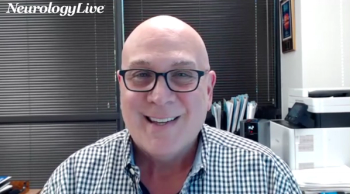
Helius Medical Technologies expands access to its PoNS device for patients with MS as Aetna joins major payers in coverage, enhancing treatment options.

Marco Meglio, Assistant Managing Editor for NeurologyLive, has been with the team since October 2019. Follow him on Twitter @marcomeglio1 or email him at [email protected]

Helius Medical Technologies expands access to its PoNS device for patients with MS as Aetna joins major payers in coverage, enhancing treatment options.

Atogepant outperforms topiramate in migraine prevention, showcasing superior efficacy and safety in the phase 3 TEMPLE trial results.

Centessa Pharmaceuticals initiates Phase 1 study for ORX142, a novel orexin receptor agonist targeting neurological disorders, promising new treatment avenues.

Recent MR analysis uncovers protein associations with neuromyelitis optica spectrum disorder, suggesting new treatment pathways and drug targets for improved management.

Roche advances prasinezumab into phase 3 trials for Parkinson disease, aiming to explore its potential as a disease-modifying treatment.

The director of sleep health at Flinders University discussed the latest clinical advances in pharmacotherapy, precision treatment targets, and combination strategies for obstructive sleep apnea.

New long-term data support ecopipam's safety and sustained efficacy in reducing tics and improving quality of life in pediatric Tourette syndrome.

Test your neurology knowledge with NeurologyLive®'s weekly quiz series, featuring questions on a variety of clinical and historical neurology topics. This week's topic is on Migraine Awareness Month

Avidity Biosciences advances del-brax for FSHD, initiating a pivotal Phase 3 study while exploring accelerated FDA approval pathways.

Daniel Mikol, MD, PhD, chief medical officer at NervGen Pharma, provided clinical perspective on recently announced positive findings from a phase 1b/2a trial testing NVG-291 as a treatment for spinal cord injury.

Mind Moments®, a podcast from NeurologyLive®, brings you an exclusive interview with Rajesh Pahwa, MD. [LISTEN TIME: 15 minutes]

A new phase 2 study explores samelisant's potential to treat cataplexy in narcolepsy type 1, promising improved patient outcomes and safety.

New 5-year findings from the National RLS Opioid Registry presented at SLEEP 2025 highlight the long-term stability and dose trends of low-dose opioid therapy in patients with restless legs syndrome.

Switching to once-nightly sodium oxybate significantly improves sleep-related eating disorder in narcolepsy patients, enhancing overall treatment outcomes.

The neuroscientist and physician at Mount Sinai explored the role of sleep-dependent brain clearance in Alzheimer disease and how emerging research is challenging longstanding assumptions.

New analysis reveals insights on hypnagogic and hypnopompic hallucinations in narcolepsy patients treated with once-nightly sodium oxybate.

A recent analysis reveals the safety profile of once-nightly sodium oxybate for narcolepsy, highlighting low discontinuation rates and common adverse events.

New research reveals solriamfetol significantly enhances neuropsychological outcomes in patients with obstructive sleep apnea and excessive daytime sleepiness.

Recent research reveals that transcranial direct current stimulation (tDCS) shows no significant benefits for insomnia, highlighting the need for larger studies.

A new study evaluates the effectiveness and safety of once-nightly sodium oxybate for narcolepsy, aiming to enhance patient treatment experiences.

A phase 2 study shows samelisant significantly reduces excessive daytime sleepiness in narcolepsy, paving the way for further research and development.

Test your neurology knowledge with NeurologyLive®'s weekly quiz series, featuring questions on a variety of clinical and historical neurology topics. This week's topic is on the care of parasomnias.

A recent study revealed that rizatriptan was ineffective for treating vestibular migraine attacks, showing limited symptom relief compared with placebo.

New data reveals RGX-202 gene therapy shows significant improvements in Duchenne muscular dystrophy patients, enhancing disease management and safety.

Phil Lambert, PhD, chief scientific officer at Satellos Bioscience, discusses the rationale and early clinical progress of SAT-3247, a novel regenerative therapy targeting muscle stem cells in Duchenne muscular dystrophy.

The UNITE trial reveals fremanezumab's effectiveness in treating migraine and comorbid depression, offering hope for patients with overlapping conditions.

AJ201 shows promising safety and efficacy in treating spinal and bulbar muscular atrophy, marking a potential breakthrough for patients.

The professor of neurology at the Miami Miller School of Medicine detailed the clinical potential of Cognivue’s Amyloid Risk Measure (CARM) for identifying individuals with cognitive impairment likely related to amyloid pathology. [WATCH TIME: 5 minutes]

Josh Bryson, PhD, head of Medical Affairs at Argenx, discussed the safety profile of efgartigimod in light of recent FAERS-based infection data and offered clinical context for patient care.

Recent analysis confirms cladribine's safety for multiple sclerosis, showing no increased pregnancy risks and effective long-term outcomes in patients.